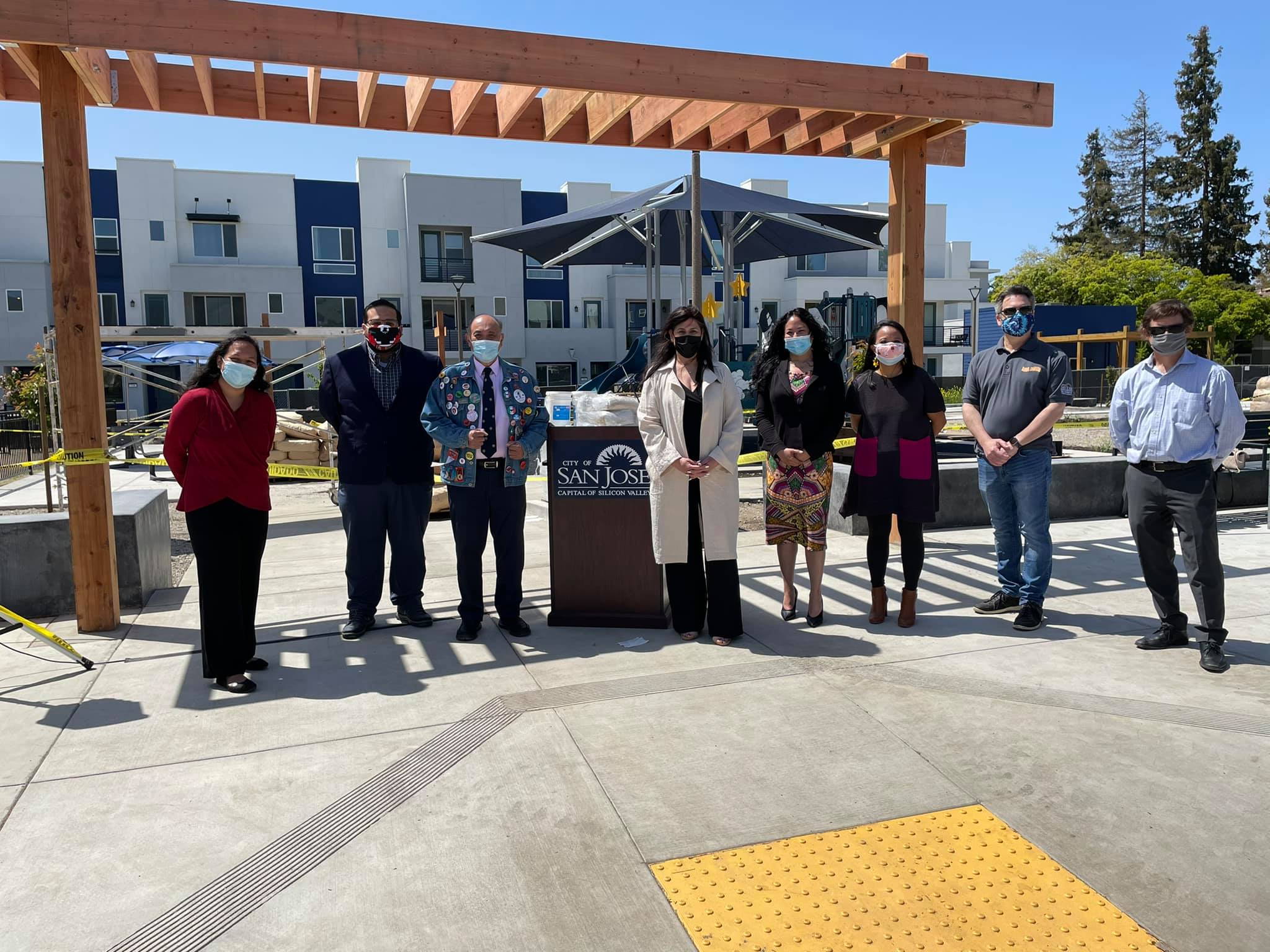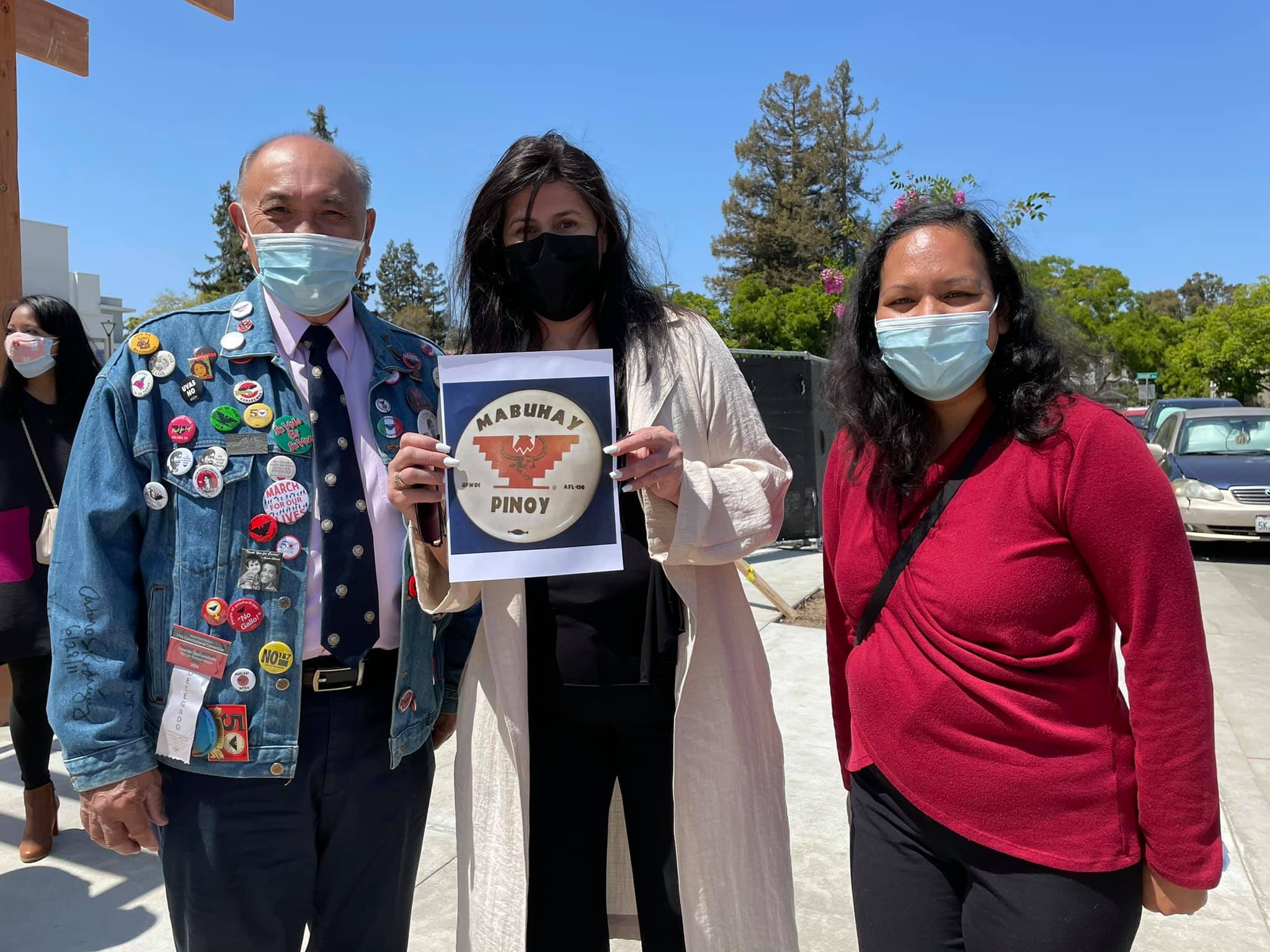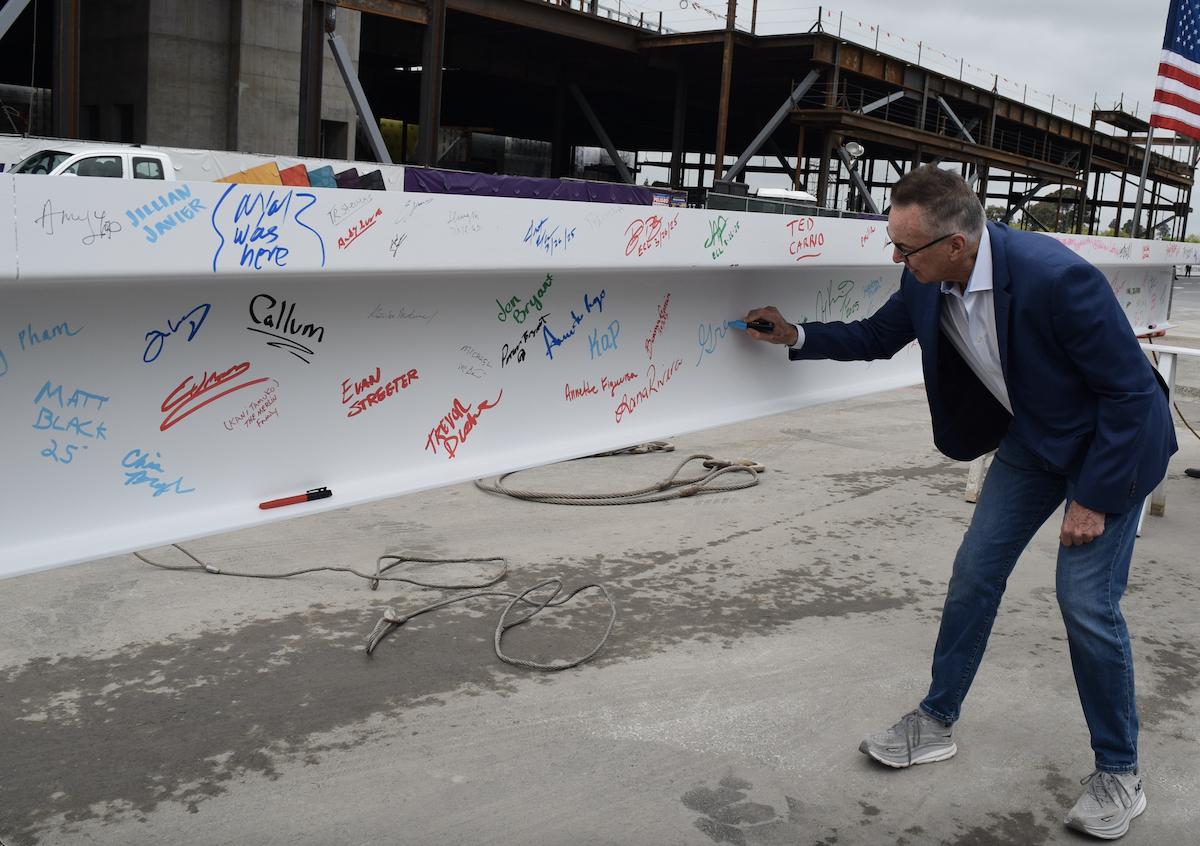A NEW park in San Jose, California is paying homage to the city’s Filipino American community and the manongs’ contributions to one of the most significant social justice movements in American history.
Delano Manongs Park will be the name of the public space on Gimelli Way, near North Capitol Avenue, in East San Jose after the city council unanimously approved the naming during a meeting on Tuesday, April 13.
“The recognition of the Filipino farmworkers and especially those who stood for equality, justice, and human rights in Delano of 1965 is overdue,” Ben Menor, a representative of the National Federation of Filipino American Associations (NaFFAA), said during a press conference on Tuesday.

Menor, a longtime resident of Santa Clara County, spoke about being a descendant of a manong, the Ilocano term for “older brother” used to refer to the Filipino farmworkers who played a pivotal role in leading the Delano Grape Strike that took place from 1965 to 1970.
Among the figures in the movement include Larry Itliong, Philip Vera Cruz and Pete Velasco, who organized around 2,000 Filipino grape workers in the Central Valley to go on strike to demand better wages and working conditions.

Itliong reached out to Cesar Chavez and Dolores Huerta of the National Farm Workers Association to join the effort. Together, manongs and Agricultural Workers Organizing Committee merged with the NFWA to become the United Farm Workers.
“My dad Benedicto Menor, a manong and veteran of World War II who came to this country from the Philippines in 1927 as a laborer, would be so proud of this honor,” he said. “He and many of the farmworkers of Santa Clara Valley are part of this historic recognition.”
For the occasion, Menor wore a tie he said was autographed by Vera Cruz after a speech at UC Santa Cruz.
The feat — which becomes the first park in the city to be dedicated to its Fil-Am population — is the result of months of advocating by Fil-Am groups that worked to gather support from the community.
Daniel Lazo, an organizer at LEAD Filipino, took the lead in submitting “Delano Manongs” into consideration when the city put a call out for naming options. He first learned about the manongs in high school during weekly history lessons hosted by a Filipino group at nearby Welch Park, and then, he later visited Delano for the 50th anniversary of the strike.
“I submitted ‘Delano Manongs’ as the name for this new park near my childhood home because of my own personal connection to this significant part in our Filipino American history,” Lazo said in a statement emailed to the Asian Journal, adding that it was inspired by Fil-Am filmmaker Marissa Aroy’s documentary of the same name.
In December, Delano Manongs Park received 72% of the public’s vote in support, before it was formally approved by the Parks and Recreation Commission in February and the city council this week.
“This is also a way to honor the narratives of the Filipino American community in San Jose, who were predominantly farmworkers when they first immigrated to [the city] in the early 30s. The Filipino American history in San Jose shares parallel stories of the Delano Manongs,” Ann Reginio, a board member of the Filipino American National Historical Society (FANHS) Santa Clara Valley chapter, told the Asian Journal in an email.
It’s a tribute that advocates say will continue to bring the Filipino laborers’ stories and leadership to the forefront of the histories of San Jose and greater California.
“A park name carries with it the weight of the people and denotes the hopes and dreams of the community. To us, the Delano Manongs symbolize not just strength and compassion, but our duty as Pinays and Pinoys to carry on the legacy of pushing and raising the community, the kapamilya (family) to greater heights,” said Alex Chu, a board member of LEAD Filipino.
Filipinos make up 5.6% of San Jose’s population and over 13% of the residents in the ZIP code where the park is located.

“I’m proud to represent a district with a large Filipino American population, but it is incumbent upon us to remember them, not just in words, but in factual, concrete moments like these,” said Councilmember Magdalena Carrasco, who represents District 5.
Carrasco also acknowledged the community’s contributions to the COVID-19 pandemic as frontliners.
“It was the Filipino community that has been on the forefront of this horrific moment in our history. They are our nurses, medical technicians, they are our frontline health care workers,” she said. “Just like our farmworkers have kept us all fed, our health care workers kept us all safe and healthy.”
Tuesday’s vote also comes amid the rise in anti-Asian hate incidents in surrounding areas.
“We know that simply naming a park won’t immediately solve the racial tensions, but we also know the symbolic gesture is a strong step in celebrating Fil-Am history. This gesture shows the community of San Jose’s commitment to stand against hate together,” Chu said.
The park, which has a sporting lawn and children’s playground, is slated to open to the public by this summer.








thank you for your artical!!